Sophomore Emerson Cohen receives an email that reads, “This is a friendly reminder that your 15 minute Boomalang conversation with [Boomalang speaker’s name] is in 15 minutes.” She hurries around her house until she finds a quiet spot for her first ever Boomalang session. She reviews key vocabulary words from the “Tradición” unit and then clicks “join.”
The conversation room opens. The student engages in an immersive dialogue where the speaker exposes her to a whole new world of connection, cultural perspectives, vocabulary and grammar. Fifteen minutes later, the conversation room closes.
When thinking of a language class in high school, one may picture students with open textbooks while learning how to write characters or accents. According to the George Lucas Educational Foundation, it is most important to practice speaking skills when learning a new language to be able to communicate beyond the classroom. French teacher Laurence Clerfeuille described how Archer’s language curriculum primarily supports students’ growing language-speaking abilities.
“We try to have students learn to communicate in the target language: French, Spanish or Chinese. Then, ideally, at the end, they’re not just able to converse with their peers or teachers but with real people from those countries,” Clerfeuille said. “That’s really the ultimate goal: actually [having] conversations with people at your level.”
Boomalang
World Language Department Chair Travis Nesbitt presented Boomalang to the language department at the end of last year. Spanish teacher Sara Gil Sáiz said the language teachers agreed this program would be beneficial for students, so they implemented Boomalang into their upper school Spanish and French classes this year.
Upper school Spanish and French students of all levels are required to complete two 15-minute Boomalang conversations per semester on topics relating to their current class unit. The package of four conversations costs $32, and students on Archer’s Flexible Tuition program receive funds towards the price, Nesbitt said. In the conversation room, English cannot be used under any circumstances, which requires students to problem-solve and immerse themselves. Prior to choosing a native speaker, students can view their geographical location and interests.
“In Spanish, we have 21 Spanish-speaking countries, so you are exposed to different accents,” Gil Sáiz said. “For example, vosotros, that I use in class, [comes naturally to] me, but [that’s] not the same case in other Spanish-speaking countries. You discover other people, cultures, accents and vocabulary.”
Freshman Sophie Shafipour is currently taking Spanish 3A taught by Gil Sáiz and has completed three Boomalang conversations so far. She said the way conversations mimic real-life experiences helps develop fluency.
“It really helps you practice and find your errors,” Shafipour said. “I do the same person [each time], and I feel like I have learned a lot from her, and she learns a lot from me. It’s nice to have a conversation while [learning] about others.”
Nesbitt said he has observed the time zone difference being a challenge for students in scheduling their conversations. Even so, Clerfeuille said she hopes students have an overall positive experience with Boomalang because it is meant to be an enjoyable way of practicing speaking skills.
“[Boomalang] is more informal, and I also hope it’s fun, culturally speaking, to become curious about someone who lives in a country where they speak the language you’re studying at school,” Clerfeuille said.
Nesbitt said the affordability of Boomalang made it more appealing because many classes were looking for textbook replacements. At the end of the year, the department will decide if they want to continue utilizing Boomalang in the future based on student and teacher feedback.
“In a language class, you might learn about a certain unit and then have conversations around [it],” Nesbitt said. “It’s a little forced, not necessarily always authentic, whereas we’re hoping there’ll be more organic and authentic conversations with [Boomalang].”
National Taiwan Normal University
Chinese classes have participated in tutoring sessions with native Chinese speakers who are training to be Chinese tutors through the National Taiwan Normal University since 2018. Chinese teacher Pei-Ying Gosselin started the program after meeting a professor who taught Chinese tutors in Taiwan. They both thought it would benefit the tutors and Archer students, and it has been incorporated into the upper school Chinese curriculum ever since.
Students complete four sections of interviews and four writing components with the tutors each semester. In the 30-minute interviews, students discuss what they are learning about in their Chinese class at Archer and answer any questions the tutor may have. The writing portion is also related to class content.
When you learn another language, you are forced to make an effort and be in a position of humility.
— French teacher Laurence Clerfeuille
Sophomore Dakota Tooley is currently taking Chinese 4. She said she has enjoyed learning from Chinese tutors from NTNU because it develops her fluency and understanding of how to speak Chinese in the real world.
“It’s a good way to get more experience speaking with somebody whose first language is Chinese,” Tooley said. “If I were to go to China or Taiwan and have to engage in a conversation with other native speakers, I wouldn’t be used to that because I’ve only been speaking with my teachers and classmates. So I think it’s really useful and important … in developing our understanding of Chinese.”
The program has evolved over the years; classes stopped using it during the pandemic because it was hard for students to be on their computers for the sessions in addition to online learning, Gosselin said. She also said the class recently switched to a more experienced group of tutors to help students learn best. Gosselin said she hopes the program continues to be part of the Chinese curriculum.
“I’m very thankful for our department chair and his support over the years of this program. And now, he is bringing all of the languages the opportunity to speak [and] communicate with native speakers,” Gosselin said. “I definitely want to continue this Chinese tutor program in the future.”
Importance of Learning a New Language Today
According to a 2021 study by Preply, a language learning marketplace, the majority of people believe it is valuable to learn a second language. Their study found that out of those who have not learned a second language, 70% feel regretful, 21% missed a career opportunity due to this and 58% felt embarrassed by their incapacity to communicate with a person speaking a different language.
Sophomore Belén Haro previously attended a Chinese immersion elementary school and now speaks Chinese fluently as a second language. She said there are many business benefits of learning Chinese because China’s economy has a large influence on markets in the world today.
“Chinese is one of the hardest languages, but I think it’s arguably one of the best to learn, especially at a young age, considering how difficult it is to learn,” Haro said. “You [can] apply it to a lot of jobs — currently, a lot of the market is in China, so if you want to go into film, business or engineering, learning Chinese is one of the big tools.”
Nesbitt said he believes it is important to learn a language to understand other cultures and ways of life in this diverse world.
“For me, the most important reason to learn a language is to expand our worldview so we can talk to people from different countries in their own languages, learn about how they see the world and learn what social, environmental or economic problems are important to them,” Nesbitt said. “Also, how they will go about solving them and then to learn about how they celebrate and enjoy everyday life. Once we expand our worldview, we [will] have more choices.”
Clerfeuille is from Bordeaux, France, and has French grandparents who immigrated to the U.S. She said learning another language exposes individuals to the struggles of immigrants and those beginning to learn a language, which is crucial in a predominantly English-speaking culture where many expect them to assimilate linguistically.
“When you learn another language, you are forced to make an effort and be in a position of humility,” Clerfeuille said. “It’s good for students to reflect on [immigrants’] experience [to] become more tolerant with others. It’s easy when you hear someone who speaks with an accent and makes mistakes [to be] like, ‘That person is not very smart,’ — it’s easy to judge, even unconsciously. When it’s your turn to speak another language, maybe you sound just the same … you start to understand it’s not that easy … If you want to become an open-minded citizen of the world and globally competent, you have to [learn another language].”
This story was originally published on The Oracle on March 24, 2024.

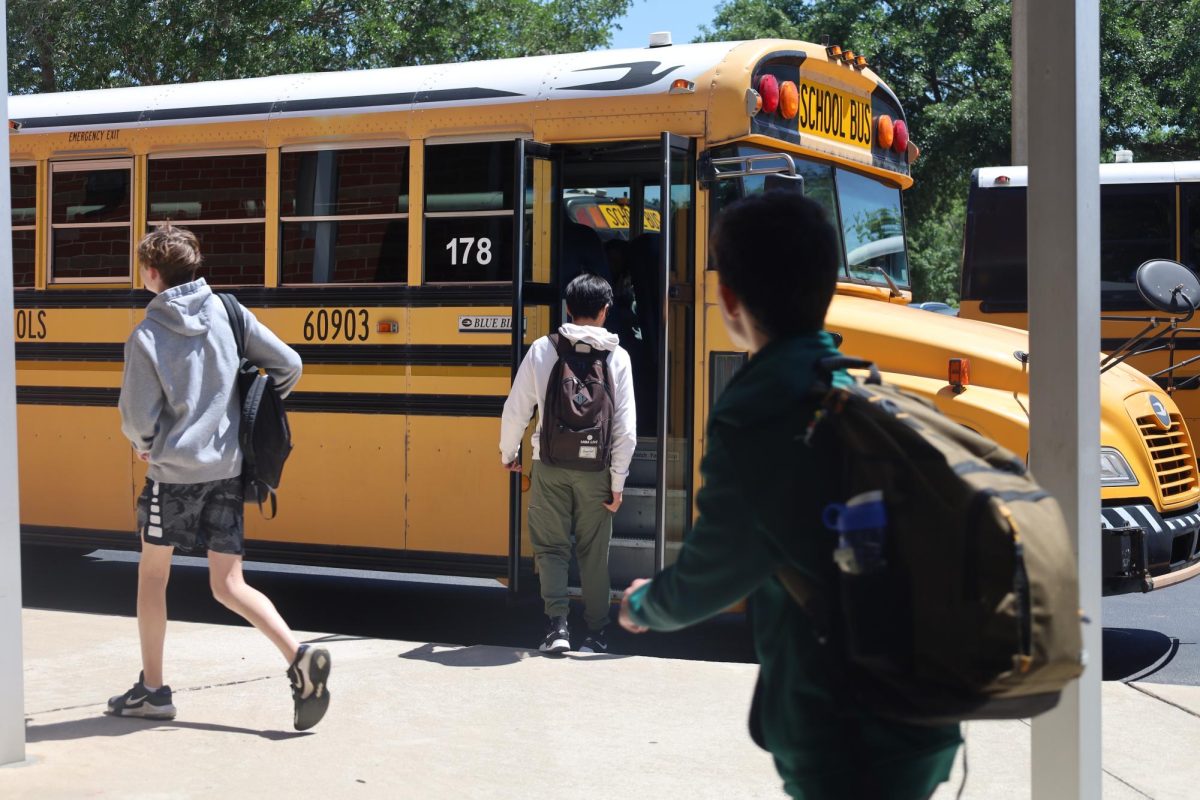


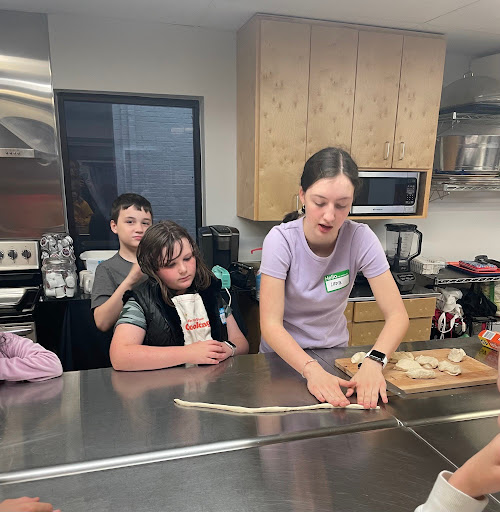
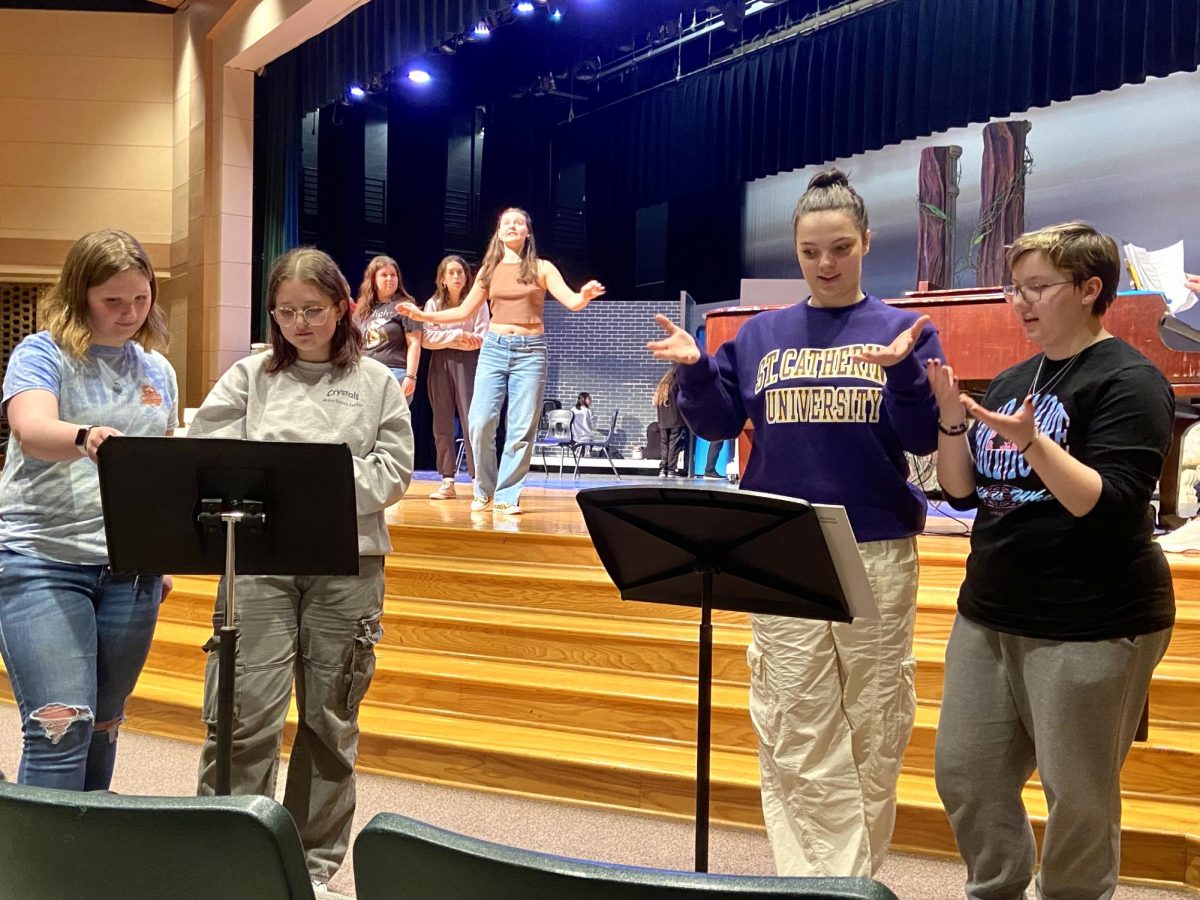
![It was definitely out of my comfort zone to get [the dress] and decide I loved it enough not to wait and risk not having something that memorable.](https://bestofsno.com/wp-content/uploads/2024/04/Precious_20180902_JRS_00008_ed1.jpg)


![Sophomore Sahasra Mandalapu practices bharatanatyam choreography in class. These new dances will be performed in an annual show in February. Mandalapu found that practicing in class helped her overcome stage fright during her performances. “When [I] get on stage, Im nervous Im going to forget, even though Ive done it for so long,” Mandalapu said. “Theres still that little bit of stage fright [when] I second-guess myself that I dont know it enough, but I do because Ive been practicing for a whole year.”](https://bestofsno.com/wp-content/uploads/2024/05/Sahasra-6-Large-1200x844.jpeg)

![In their full runway outfits, (from left) Audrey Lee 25, Olivia Lucy Teets, 25, Fashion Design teacher Ms. Judy Chance, and Xueying Lili Yang pose for a photo. All three girls made it to Austin Fashion Week by getting in the top 10 in a previous runway show held by Shop LC.
[I like my students] creativity and how they can look at a fabric and make it their own, Ms. Chance said.](https://bestofsno.com/wp-content/uploads/2024/04/IMG_9686-e1714088765730-1129x1200.jpeg)





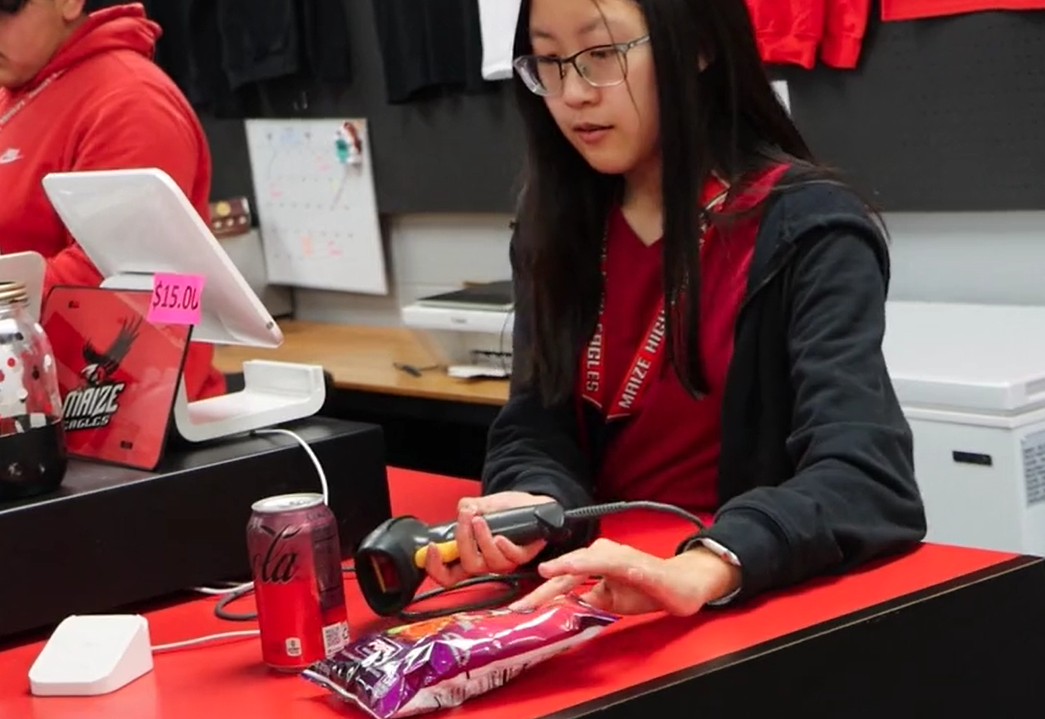
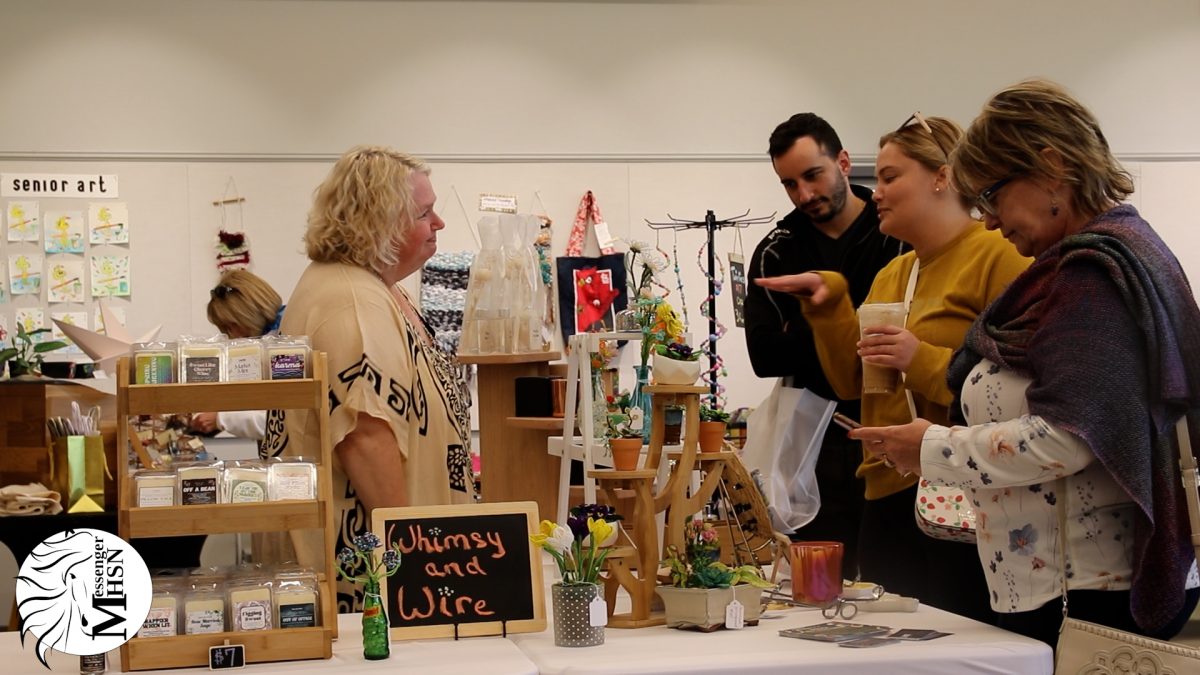







![IN THE SPOTLIGHT: Junior Zalie Mann performs “I Love to Cry at Weddings,” an ensemble piece from the fall musical Sweet Charity, to prospective students during the Fine Arts Showcase on Wednesday, Nov. 8. The showcase is a compilation of performances and demonstrations from each fine arts strand offered at McCallum. This show is put on so that prospective students can see if they are interested in joining an academy or major.
Sweet Charity originally ran the weekends of Sept. 28 and Oct. 8, but made a comeback for the Fine Arts Showcase.
“[Being at the front in the spotlight] is my favorite part of the whole dance, so I was super happy to be on stage performing and smiling at the audience,” Mann said.
Mann performed in both the musical theatre performance and dance excerpt “Ethereal,” a contemporary piece choreographed by the new dance director Terrance Carson, in the showcase. With also being a dance ambassador, Mann got to talk about what MAC dance is, her experience and answer any questions the aspiring arts majors and their parents may have.
Caption by Maya Tackett.](https://bestofsno.com/wp-content/uploads/2024/02/53321803427_47cd17fe70_o-1-1200x800.jpg)
![SPREADING THE JOY: Sophomore Chim Becker poses with sophomores Cozbi Sims and Lou Davidson while manning a table at the Hispanic Heritage treat day during lunch of Sept 28. Becker is a part of the students of color alliance, who put together the activity to raise money for their club.
“It [the stand] was really fun because McCallum has a lot of latino kids,” Becker said. “And I think it was nice that I could share the stuff that I usually just have at home with people who have never tried it before.”
Becker recognizes the importance of celebrating Hispanic heritage at Mac.
“I think its important to celebrate,” Becker said. “Because our culture is awesome and super cool, and everybody should be able to learn about other cultures of the world.”
Caption by JoJo Barnard.](https://bestofsno.com/wp-content/uploads/2024/01/53221601352_4127a81c41_o-1200x675.jpg)





